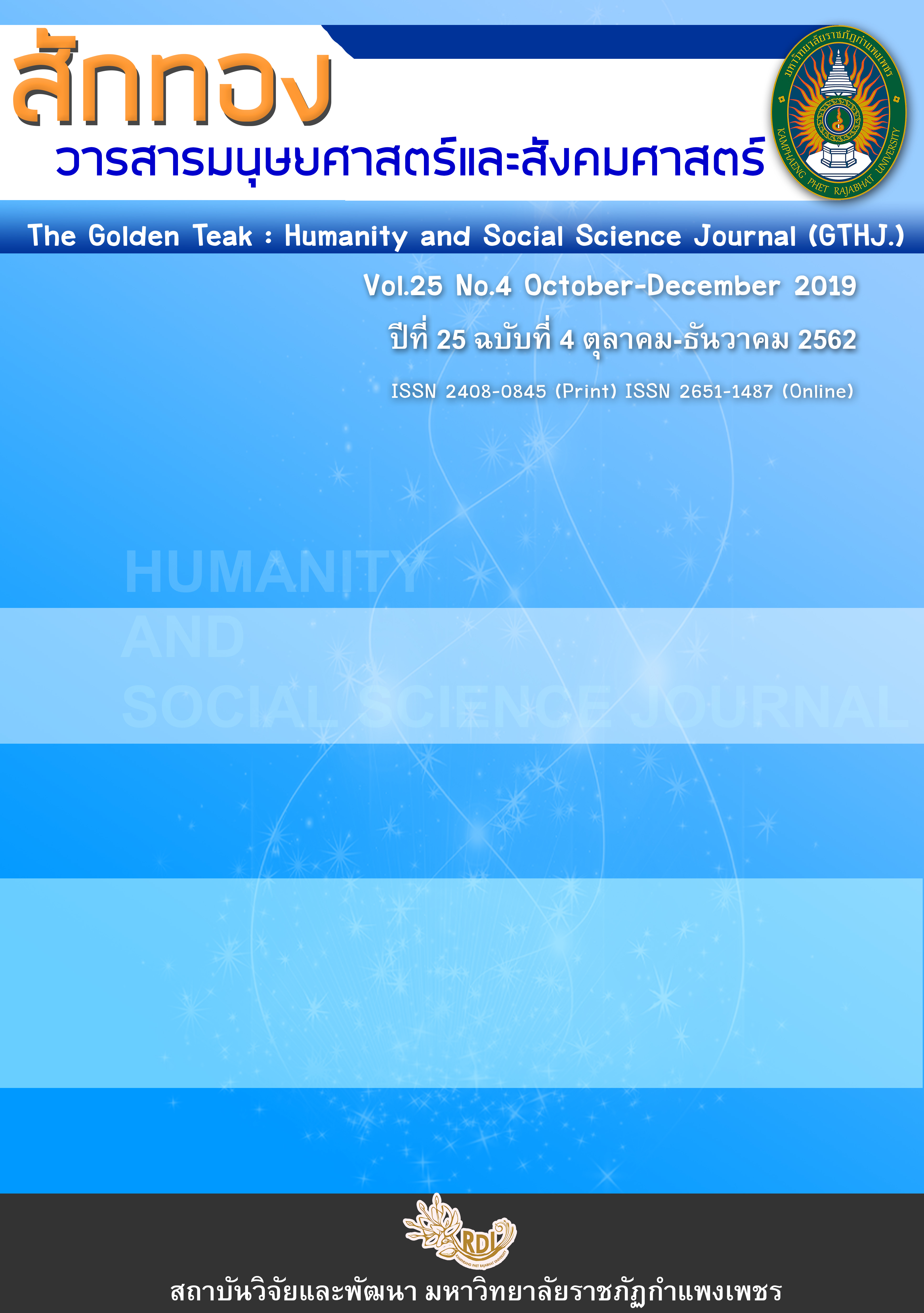The Development of Critical Thinking Skills through the STEM Activities for the General Science Pre-service Teacher of Phranakhon Rajabhat University
Main Article Content
Abstract
The purpose of this study was to enhance fourth year general science pre-service students’ critical thinking skills that studying in college of teacher education at Phranakhon Rajabhat University by using STEM activities before practicing profession in the schools. The samples used in the study were general science pre-service students studying in academic year 2016 at college of teacher education at Phranakhon Rajabhat University. The researcher created 8 STEM activities plans for enhancing critical thinking skills. The researcher measured samples’ critical thinking skills before and after using STEM activities to develop critical thinking skills by using the critical thinking skills test adapted from Cornell Critical Thinking Test Level Z. The researcher measured samples’ STEM activity organized skills by using STEM activity organized skills evaluate form and measured samples’ satisfaction toward learning with the STEM activities by using satisfaction evaluate form. The data were analyzed by using mean, standard deviation and T-test dependent. The research results revealed that: 1. The samples’ scores of each critical thinking skill and in total mean scores after using STEM activities were statistically higher than the samples’ scores before using STEM activities at the 0.05 level of significance.2. The samples’ STEM activity organized skills were good. 3. The samples’ satisfaction toward learning with the STEM activities was high.
Article Details
บทความที่ได้รับการตีพิมพ์เป็นลิขสิทธิ์ของวารสาร สักทอง : วารสารมนุษยศาสตร์และสังคมศาสตร์ สถาบันวิจัยและพัฒนา มหาวิทยาลับราชภัฏกำแพงเพชร
ข้อคิดเห็นใดๆ ที่ปรากฎในวารสารเป็นวรรณกรรมของผู้เขียนโดยเฉพาะ ซึ่งมหาวิทยาลัยราชภัฏกำแพงเพชรและบรรณาธิการไม่จำเป็นต้องเห็นด้วย
References
STEM education approach to Improve students metacognitive skills. K-12 STEM
Education, 1(3), 123–136.
Dressel, P.L. & Mayhew, L.B. (1957). General Education: Explorations In Evaluation.
(2 nd ed.). Washington, D.C. : American Council on Education.
Nongnuch, E. (2015). The study of learning achievement and ability to solve scientific
Problems of Prathomsuksa 6 students who receive STEM Education learning
management. [Online]. Available : http://swis.act.ac.th/html_edu/act/
temp_emp_research/2204.pdf [2016, November 18].
Raksapol, T. (2015). STEM Education Workshop Summary Report. [Online]. Available :
http://slidshare.net/focusphysics/stem-workshop-summary [2017, July 1].
Rosson, M. & Carroll, J. (2009). Dilemmas in a general theory of planning. Policy Science, 4(2),
155-169.
Siripat, C. (2005). Integrated learning management. Bangkok : Book Point.
Sonthi, P. (2014). STEM Education and Higher Order Thinking. M1agazines of IPST, 42(189),
7-10
Taweesak, J. (2016). Professional Science Teacher. Sukhothai Thammathirat Open
University, 6(1), 159-173.
Teerachai, P. (2001). Science Project : Basic of Science Research, Child Center : Concept,
Method and Teaching Technic 1. Bangkok : The Master Group Management Co., Ltd.
The Institute for the Promotion of Teaching Science and Technology. (2015). Science
Technology Engineer and Mathematics Education, Primary 4-6. Business
Organization of the Office of the welfare Promotion commission for teachers and
educational personnel.
Vicharn, P. (2012). Way of making learning for leaner in 21th century. Bangkok : Sodsri-
Saridwongso Foundation
Wichai, W. (2011). Innovation of Curriculum and Learning To Be Citizen. Bangkok : R and
Print.


